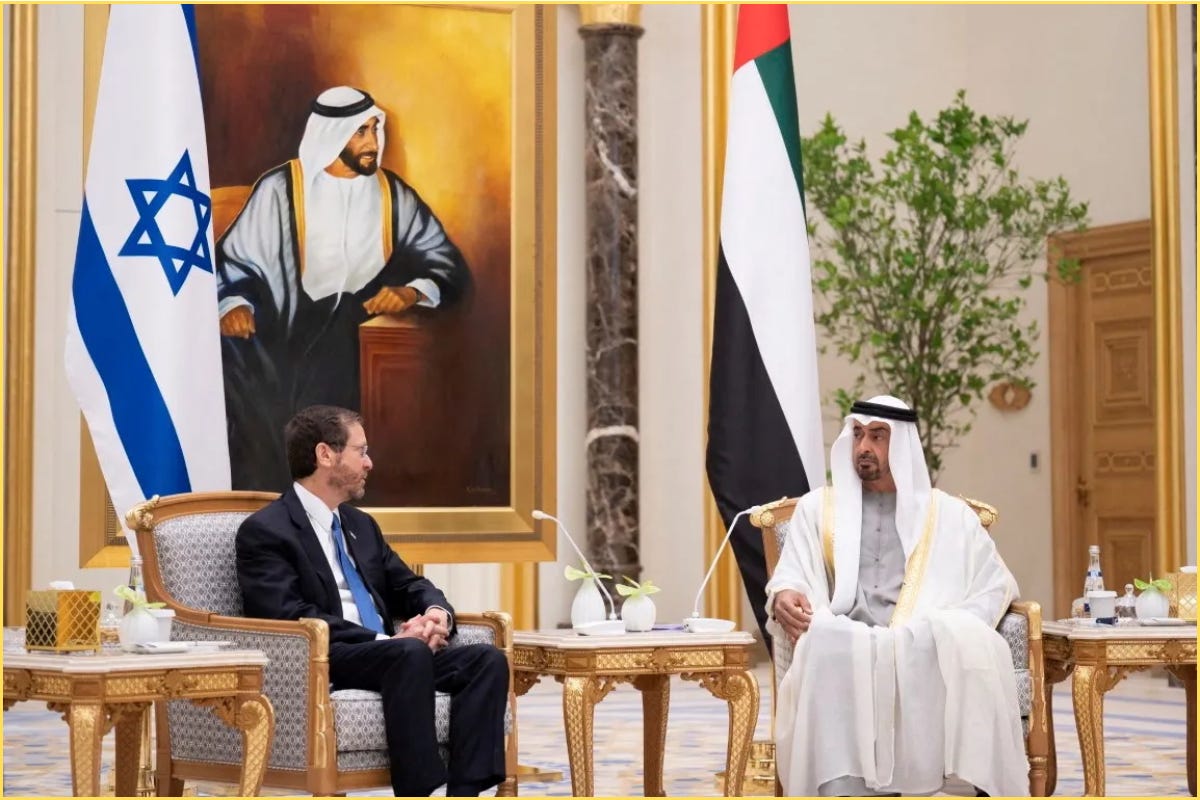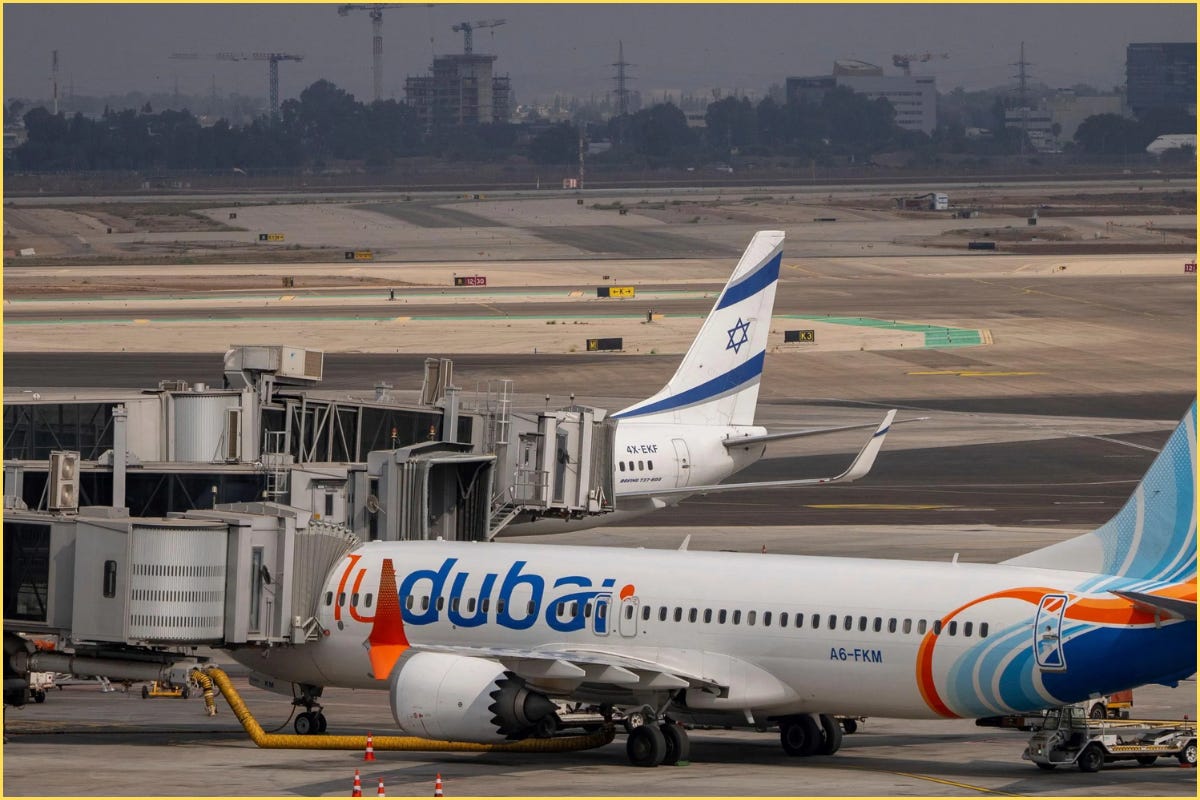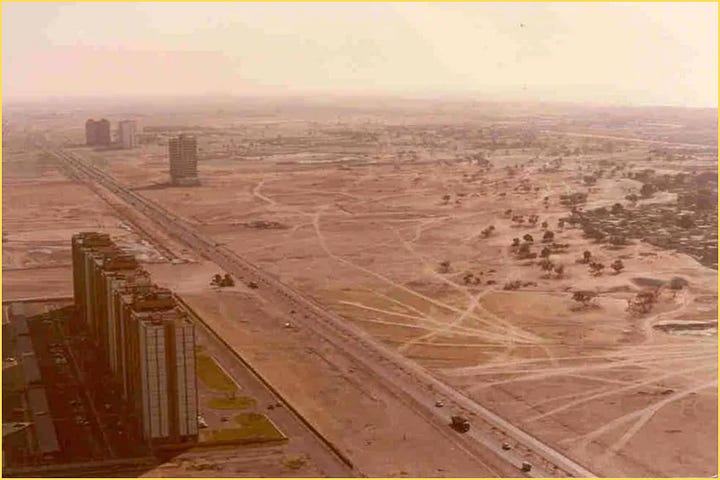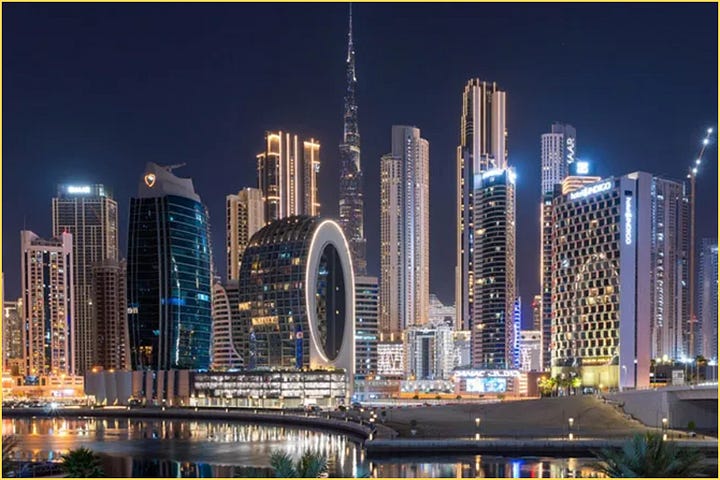this country does not have a "red line"
the uae talks of “red lines” on israel, but its economy, security, and very survival are tied to empire. annexation won’t break that bond, it will only expose it.
When the United Arab Emirates declared that any Israeli annexation of the West Bank was a “red line”, it sounded serious. Abu Dhabi’s envoy Lana Nusseibeh warned it would undermine the Abraham Accords. For a moment, it looked as if the warning had bite. Israel even pulled an annexation debate from its cabinet agenda.

But in Gulf politics, words often serve as theater. For the UAE, such warnings are more about appearances than actual consequences.
performance diplomacy
The Emiratis almost never go public with warnings. The fact that they did so was meant to show Arab and Islamic audiences that Abu Dhabi still “cares” about Palestinians. The Doha strike only amplified this theater. After Israeli warplanes targeted Hamas leaders in the Qatari capital, the UAE summoned Israel’s deputy envoy, condemned the act as “cowardly,” and joined emergency summits. Yet beyond communiqués and handshakes, nothing structural changed. In fact, while these summits were taking place, Emirati military planes were allegedly still landing in Israel, underscoring the gap between rhetoric and reality.

The point wasn’t to confront Israel, it was to manage perception. By speaking loudly, the UAE shields itself from accusations of complicity, while continuing to reap the benefits of normalization.
annexation might come, either way the uae will stay
Behind the posturing lies a simple reality, the UAE is not going to sever ties with Israel, even if annexation happens. Material interests dominate. Abu Dhabi’s partnership with Israel delivers surveillance technology, cybersecurity capabilities, investment opportunities, and a foothold in Washington. These are not concessions it will sacrifice over the Palestinians.
Annexation will proceed eventually, whether in sweeping form or in pieces through “maximum land, minimum Arabs” maps pushed by Israeli ministers like Bezalel Smotrich. And when it does, the UAE will issue another round of condemnations, maybe recall an ambassador for show, but the trade flights, the defense contracts, and the shared intelligence networks will carry on.

competing in the marketplace of posture
The UAE’s red lines are about competition. Abu Dhabi wants to keep pace with Qatar, Turkey, Iran, and Saudi Arabia, all of whom posture as defenders of Palestine. But they operate with very different capacities. Turkey, Iran, and Saudi Arabia are large states with tens of millions of people and real strategic depth. Saudi Arabia has well over thirty million citizens. They can act like middle powers because size, geography, and industry give them leverage the Emirates simply do not have.
The UAE is a small state where citizens are a minority and expatriate workers are the majority. Its influence travels through money and patronage, not population. The model is straightforward. Oil‑and‑finance rents fund soft power; hosting bases and buying advanced weapons secure hard guarantees from bigger powers. That dependency sets the ceiling on confrontation. Israel functions as an extension of U.S. power in the region (or the U.S. functions as an extension of Jewish power), so an open break with Israel would amount to picking a fight with the same patron that also underwrites Emirati security.
This becomes clear in the details. The federation was stitched together in 1971. Roughly one million Emirati citizens sit within a population close to ten million. The U.S. Air Force operates out of Al Dhafra Air Base near Abu Dhabi and there is a French naval facility in the capital. These are constant reminders that core security is outsourced to foreign powers. Influence, in other words, is rented upward. Matter of fact, the country is so secured that Abu Dhabi instead pours money into destabilizing ventures abroad. With core security outsourced to Washington and Tel Aviv, the Emirates can export disruption instead of worrying about defense at home.


Qatar mirrors much of this profile. Independence in 1971, expatriate‑heavy demographics, single‑family rule, and, like the UAE, has poured its resource wealth into destabilizing ventures abroad.
The contrast comes down to tools though. Doha leans on gas and media e.g. Al Jazeera while Abu Dhabi markets itself as a hub for finance, logistics, tourism, and arms. Both punch above their weight only because they rely on external protection, but in this article the focus remains squarely on the UAE.
The roots are colonial. Under British protection in the twentieth century, London secured Gulf shipping lanes and oil by backing loyal rulers across what became the Trucial States. A coastline once associated with pearls and piracy was folded into rentier monarchies whose survival depended on outside guarantees. The formula hasn’t changed till now. They still attach themselves to a dominant power and purchase security through dependence. That is why, even after an Israeli strike in a Gulf capital, Abu Dhabi limited itself to diplomatic protest. No boycotts, no sanctions, no freeze on joint ventures, only statements and summits in place of penalties. Which is enough, for now, to keep the balancing act intact.
the real risk is exposure
The Abraham Accords were marketed as a path to peace, but in practice It functions as a license for Israel to keep going with occupation while Gulf monarchies cashed in on tech, arms, and capital. For Palestinians, annexation is not an abstraction. It means more dispossession, more fragmentation, and life under an ever‑hardening apartheid system. For Abu Dhabi, annexation registers as a public‑relations headache, not a strategic rupture.
The real danger for the UAE is not a break with Israel, it probably will not happen anytime soon. The danger is exposure. That Israel’s actions strip away the fiction of balance and make the hypocrisy impossible to hide.
A red line drawn in speeches but erased in practice is no red line at all. It is theater. And theater eventually loses its audience. When that happens, Abu Dhabi will be left with what it has always had. Dependence disguised as diplomacy, and a performance no one takes seriously anymore.
Boycott the UAE.
Don’t go to Dubai.


